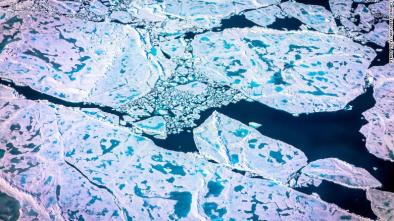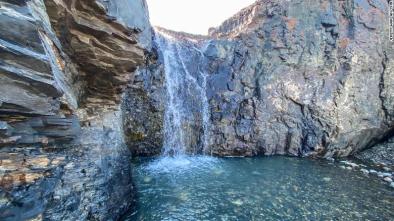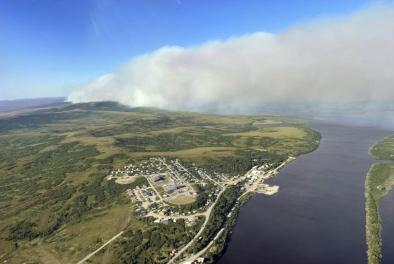Science Source
Declining summer snowfall in the Arctic: causes, impacts and feedbacks
- Explores recent changes in the Arctic hydrological cycle using in situ observations and an improved atmospheric reanalysis data set, ERA-Interim
- Documents a pronounced decline in summer snowfall over the Arctic Ocean and Canadian Archipelago
- Diagnoses the snowfall decline as being almost entirely caused by changes in precipitation form (snow turning to rain) with very little influence of decreases in total precipitation
- States the proportion of precipitation falling as snow has decreased as a result of lower-atmospheric warming
- Finds that, statistically, over 99% of the summer snowfall decline is linked to Arctic warming over the past two decades
- Derives an estimate for the amount of snow-covered ice based on the reanalysis snowfall data over the ice-covered Arctic Ocean
- Estimates that the area of snow-covered ice, and the proportion of sea ice covered by snow, have decreased significantly
- Performs a series of sensitivity experiments in which inter-annual changes in snow-covered ice are either unaccounted for, or are parameterized
- In the parameterized case, the loss of snow-on-ice results in a substantial decrease in the surface albedo over the Arctic Ocean, that is of comparable magnitude to the decrease in albedo due to the decline in sea ice cover
- Finds, accordingly, that the solar input to the Arctic Ocean is increased, causing additional surface ice melt
- Concludes that the decline in summer snowfall has likely contributed to the thinning of sea ice over recent decades
- The results presented provide support for the existence of a positive feedback in association with warming-induced reductions in summer snowfall
Related Content
Science Source
| Communications Earth & Environment
The Arctic has warmed nearly four times faster than the globe since 1979
Rantanen, M., Karpechko et al
Headline

Aug 12, 2022 | Climate Nexus Hot News
The Arctic is warming four times faster than the rest of the world
Headline

Jul 21, 2022 | CNN
A 'Not Normal' Amount Of Greenland's Ice Melted Last Weekend
Headline

Jun 14, 2022 | Climate Nexus Hot News
Yup'ik People Defend Homes From Climate-Fueled Fires In Yukon Delta


